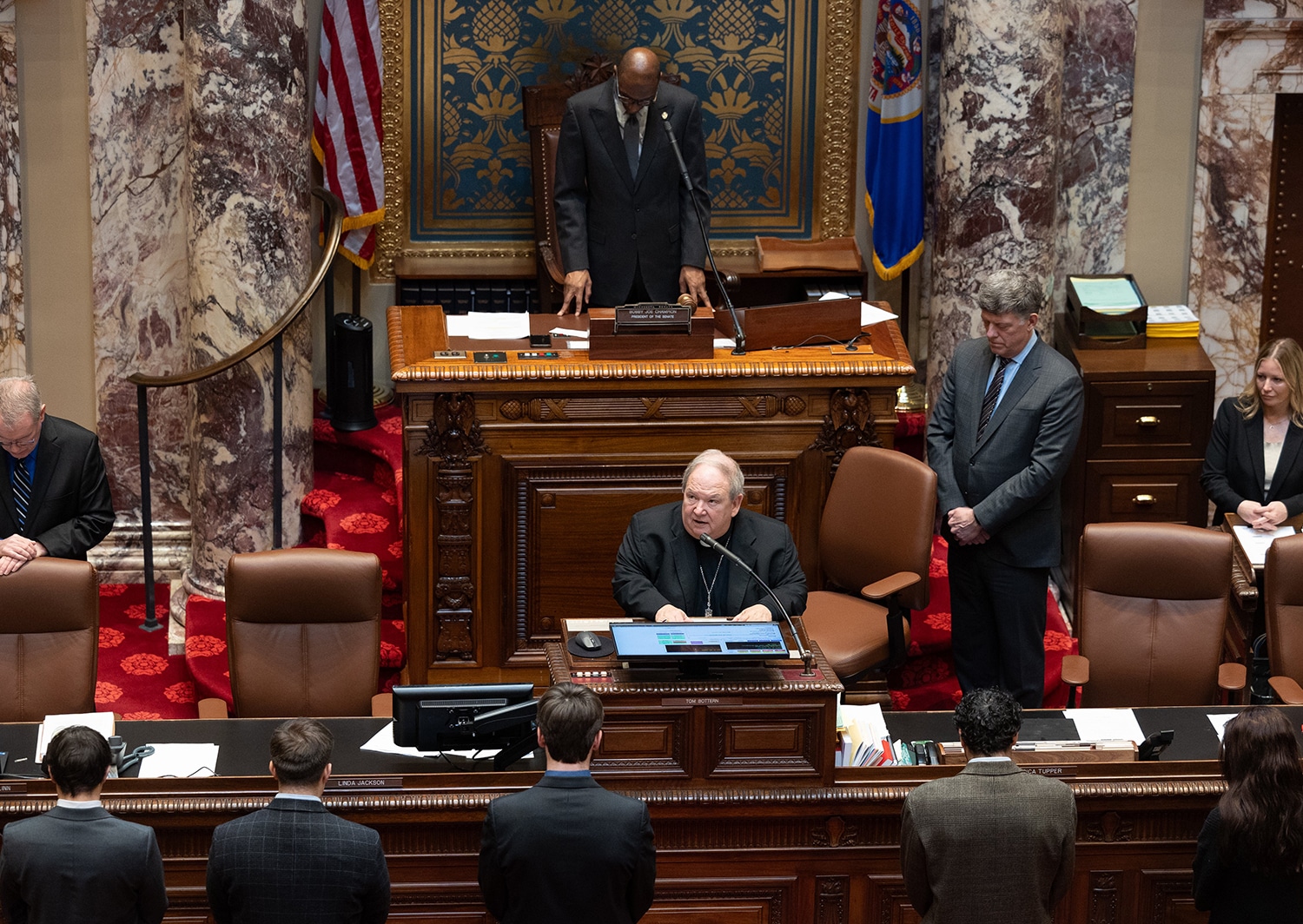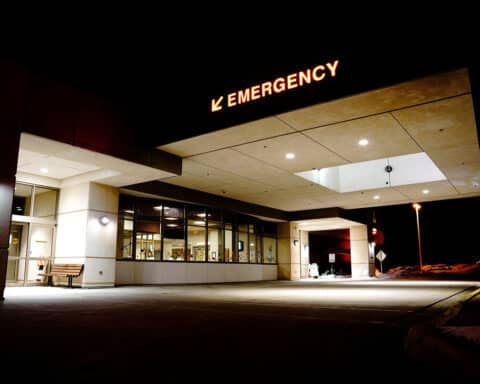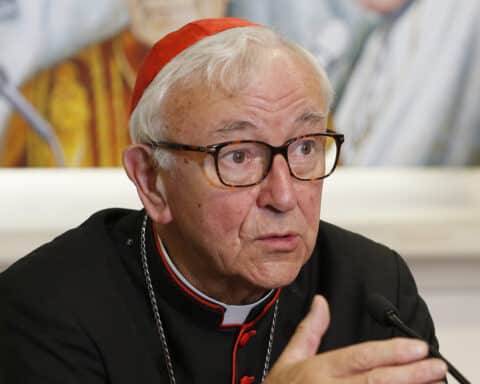ST. PAUL, Minn. (OSV News) — Even as a Minnesota House committee debated and moved forward a bill that would legalize physician-assisted suicide, Archbishop Bernard A. Hebda of St. Paul and Minneapolis led the state Senate and House in prayer on March 7.
“Almighty God, you have made each person in your image unique and irreplaceable. Help us to recognize our common humanity and our true identity as brothers and sisters, irrespective of our race or cultural backgrounds or the ways in which we seek you,” the archbishop prayed.
The archbishop was joined at the Minnesota Capitol by Auxiliary Bishops Joseph A. Williams and Michael J. Izen, and Catholic bishops from across the state for an annual meeting with lawmakers in their offices.
The prayer and the meetings came at a critical time for Minnesotans as several bills work their way through the Legislature that Catholic leaders say would erode human rights in the state.
Physician-assisted suicide bill
Members of the House Public Safety Finance and Policy Committee on March 7 heard testimony, debated and amended a bill that would allow physician-assisted suicide for patients diagnosed with a terminal illness and with a prognosis of six months or less to live.
With an 8-6 vote, the amended bill, HF1930, was referred to the House Judiciary Finance and Civil Law Committee, whose members heard testimony and debated the measure on March 12. With an 8-5 vote, that committee then forwarded it to the House Commerce, Finance and Policy Committee. The companion Senate bill is SF1813.
Religious exemption
Another bill before the Legislature seeks to include a religious exemption to an amendment of the Minnesota Human Rights Act that adds “gender identity” as a protected status.
The Minnesota Catholic Conference, which represents the public policy interests of the state’s bishops, said that without a religious exemption, churches and schools would be prohibited from acting on religious beliefs regarding human sexuality that could impact what they teach and who they hire.
In his prayer with lawmakers, Archbishop Hebda encouraged mutual understanding and respect.
“In the fraternal bonds we share, may we work to generate policies that foster peace and justice,” the archbishop prayed. “Giving to each what is due, help us to engage conflict not in a spirit of anger and resentment, but in mutual acknowledgment that disagreement is often rooted in misunderstandings. Teach us to listen patiently to one another so that we may come to a deeper place of understanding and move forward in greater unity, while always striving to respect the legitimate diversity with which you have left and enriched our state.”
The archbishop told senators that he was thankful “to be praying with you and for you this morning as we strive together to discern what serves the common good of our state.”
Several people gathered outside the House committee hearing room March 7 before the meeting on HF1930 started said they wanted to attend the hearing to show that they are concerned about the physician-assisted suicide bill and to testify against it.
Great dignity in the human person
Brother Conrad Richardson of the Franciscan Brothers of Peace in St. Paul said the bill has personal significance for him and members of his religious order. The order’s founder, Brother Michael Gaworski, required a feeding tube for 12 years after he suffered cardiac arrest and an infection that caused a brain injury. Brother Conrad, a certified nursing assistant, cared for him before his death in 2003.
Brother Conrad said physician-assisted suicide is wrong “because it’s taking a human life with dignity and value and meaning.”
“A person’s usefulness, success or notoriety (is seen as one) of the most important things,” Brother Conrad told The Catholic Spirit, the archdiocesan newspaper. “But there is beautiful, great dignity in just the human person (themself).”
Brother Conrad said he and the other friars were edified by how Brother Michael suffered in the years before his death.
“(There is) an amazing amount to be learned from people that are in our lives that we care for,” he said. “If life has any meaning at all, then suffering does as well, because that’s part of life.”
Access to health care
Rebecca Delahunt, director of public policy for the Minnesota Family Council, said that “elderly folks, people with disabilities (or those) who receive a diagnosis” could be discouraged from receiving authentic health care in favor of assisted suicide.
“We want people to have access to great health care and not feel like they are a burden on society and (feel as though) assisted suicide is their only option,” Delahunt said.
HF1930/SF1813 would allow anyone, regardless of their state of residence, with a six-month prognosis to come to Minnesota to receive a fatal prescription. Under the current formulation of the bill, a health care professional would not have to be present with the patient when they take the medication.
The bill allows doctors to decline to provide the medication, but they are still required to refer the patient to a doctor who will prescribe it, raising concerns for doctors who oppose the bill.
“If you are making the referral, you are still involved in the act, so that doesn’t really take care of your freedom of conscience. To me that is just as serious,” said Dr. Paul Post, a family medicine doctor who retired after 37 years of practicing medicine in Minnesota and who attended the March 7 hearing.
Anna Wilgenbusch is on the staff of The Catholic Spirit, newspaper of the Archdiocese of St. Paul and Minneapolis.





